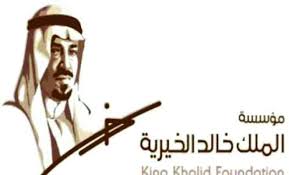Jeddah, Feb 18: Bureaucratic hurdles and a lack of qualified personnel are among the major challenges facing philanthropic works in the Kingdom, a study revealed.
 The King Khalid Foundation (KKF), Riyadh, recently conducted a study, titled “Donor Institutions in the Kingdom: Facts and Figures” in cooperation with the Gerhart Center for Philanthropy and Civic Engagement.
The King Khalid Foundation (KKF), Riyadh, recently conducted a study, titled “Donor Institutions in the Kingdom: Facts and Figures” in cooperation with the Gerhart Center for Philanthropy and Civic Engagement.
The study mentioned about regulations and laws, lack of competent actors capable of implementing programs, pursuing funding and uneven cash flows as other barriers in carrying voluntary services.
The report was released at a ceremony held at the KKF headquarters in which several speakers represented a number of nonprofit organizations from within and outside the Kingdom, including Princess Al-Bandari bint Abdul Rahman Al-Faysal, director-general of the KKF; Dr. Abdulaziz Almagushi, assistant director-general of the Prince Sultan Bin Abdulaziz Al-Saud Foundation; Hassan Al-Damluji, head of Middle East Relations at the Bill & Melinda Gates Foundation; and Dr. Ali Aouni, head of the Gerhart Center for Philanthropy and Civic Engagement, besides several leaders and activists representing a number of donor institutions’ and the nonprofit sector in the Kingdom.
Princess Al-Bandari said that the need for adequate information about the philanthropic institutions in the Kingdom was the key reason to conduct this study.
Stressing the study was still not over, the princess said it needed to explore ways to support dialogue on their role in the society, making them a catalyst for societal transformation for the better.
She asserted that the foundation is very interested in research studies and gives this aspect much attention within the aim of bringing about change and positive impact on society.
According to the study, 86 percent of donor institutions are “privately” owned by Saudis; royal institutions amounted to 12 percent; while 66.1 percent of them are autonomously implementing their programs. The study also showed that 7.4 percent of them grants loans to individuals or institutions, or offer in-kind donations.
The study showed that 7.62 percent of the grants and special programs of the donor institutions in the Kingdom are directly channeled to individuals, while 9.55 percent of them channel their funding to charity organizations.
As to the work of these institutions, the study revealed that the education sector ranked first, where the proportion of institutions that allocate part of their grants and programs for this sector is 71. 2 percent; then came the family sector, health, community development, and care of the disabled.
The KKF said it carried the comprehensive survey of the voluntary institutions to study the nature of these bodies, nature and amount of funding they receive and also how they distribute the funding.
This is besides the sectors they operate, their budgets, the extent of convergence among themselves in order to promote qualitative and quantitative knowledge about them and to make available documented data and evidence about the scope of their contribution to local development and compare them globally, it said.





Comments
Add new comment